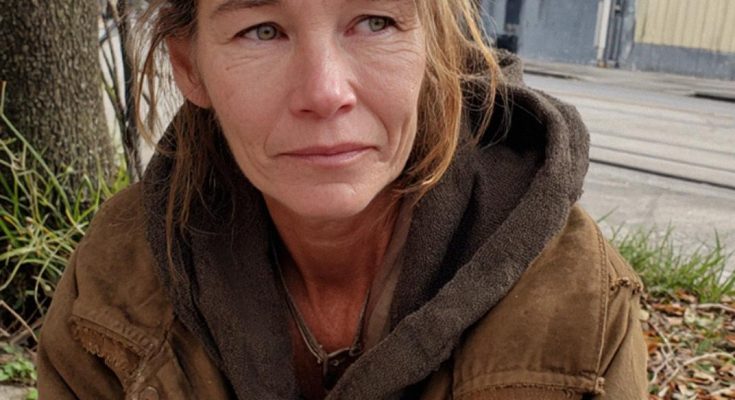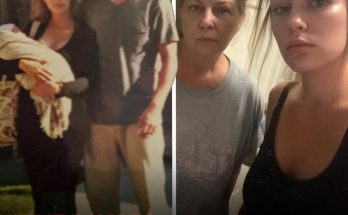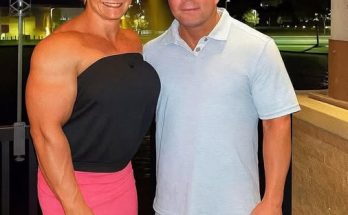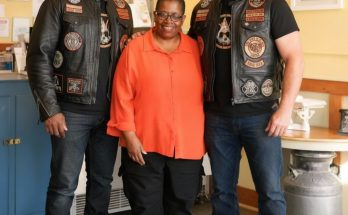Thanksgiving hadn’t held any real meaning for me since I lost my wife, Marla, at the age of forty-nine. Her illness was a slow, cruel cancer, the kind that strips a person down to silence and shadow long before the end. For three months, I slept in a recliner beside her hospice bed, often forgetting what it felt like to exhale without the crushing weight of fear. After she was gone, my world narrowed entirely to our only child, Sarah. She became the singular reason I could convince myself to put my feet on the floor each morning. I didn’t care about holidays or birthdays; my only concern was keeping her grounded while I silently sank beneath the burden of unspeakable grief.
When Sarah moved overseas for work, I told her I was profoundly proud—and I meant it. But the moment the door clicked shut behind her, the silence rushed in, filling the house like water through a broken hull. Music ceased to sound like music, meals became purely mechanical, and the very walls seemed to recede, deepening my isolation.
That Thanksgiving, I was fifty-one, and Sarah couldn’t fly home from Scotland. We had scheduled a video call for the evening, but the morning stretched ahead of me, an endless hallway of closed doors and painful memories. The house felt terribly wrong. It wasn’t just the quiet I had grown accustomed to; it was the way everything was unnaturally frozen, holding its breath. The kitchen counters were too clean, the hum of the refrigerator seemed sharper, mocking the immense silence.
I stood at the sink, staring out the window with a mug of coffee I didn’t want, yet forced myself to drink. I could hear Marla’s voice echoing in my mind: “After I’m gone, my Eric, stick to a routine, honey. Just to get you back onto your feet again. A routine will help, trust me.” I did trust her; I had trusted her with everything.
Setting the mug down, I grabbed my keys and reached for the thick, warm brown jacket Sarah had given me years ago. It was too nice for a simple trip to the grocery store, but I needed the comforting reminder that I was loved, even when I felt utterly alone. I needed to move, to feel the cold, fresh air on my face.
I walked to the store slowly, mechanically picking up a rotisserie chicken, dinner rolls, cranberry sauce, and a pumpkin pie. I didn’t need any of it, knowing I would probably only pick at the pie, leaving the rest untouched.
As I left the store, my arms full of groceries, I saw her.
She was sitting alone beneath a bare maple tree near the cart return. Her hands trembled in her lap, and she wore no coat, her eyes fixed on the ground as if she wished the concrete would simply swallow her whole. People hurried past, avoiding eye contact, treating her as if she didn’t exist. But something visceral tugged at me.
I almost kept walking. Then, I heard Marla’s voice again: “Do something, Eric. Do something good.”
I approached her slowly, unsure of what I could possibly say. She tensed instantly. “I’m not going to bother you,” I said quietly. “I’m not going to ask you any questions. You just… look cold.”
She didn’t reply, only blinked, wary and utterly exhausted, as if the weight of the entire world had settled onto her slight shoulders. I unzipped my jacket—the thick, warm one—and offered it to her with both hands. “Here, you need this more than I do.”
She looked up, blinking as if I had spoken a foreign language. Her mouth opened slightly, but no words came. Her fingers, red and cracked from the cold, hovered near mine before finally taking the coat. She clutched the fabric tightly, as if it might vanish.
I handed her the bag of groceries, fumbling in my pocket for the half-dried pen I always carried. I managed to scrawl my address across the top of the pie box and held it out. “If you really need help,” I said, my voice catching on the word ‘help.’ “My name is Eric.”
She nodded once, barely perceptible, and whispered a soft “thank you” that I might have imagined.
That night, on the video call, I lied to Sarah about eating dinner, claiming I’d only had a small bite of pie. We talked about the weather in Scotland, our neighbors, anything to avoid the gaping ache of grief we both felt so deeply. After the call ended, I sat in the dark living room, staring at the empty chair across from me. I wondered if the woman had eaten, if she had found shelter, or if she had discarded the jacket. I told myself I had done what I could, mumbling to myself, “You did exactly what Marla would have wanted you to do, Eric.”
Two years passed. The memory of the woman didn’t vanish, but it was filed away, stored in the quiet, deep recesses where I kept all the grief I couldn’t bear to carry.
Then, on Thanksgiving, just after noon, my doorbell rang. Sarah and her husband, Jake, were visiting, currently engrossed in a board game at the dining table. “Who on earth could that be?” I muttered, slipping into my slippers.
When I opened the door, I felt the breath leave my body.
It was her.
She looked remarkably different—healthy, clean, and smiling. Her hair was brushed, tucked behind her ears, and she wore a proper winter coat. She held a small black backpack clutched to her chest.
“Thank goodness,” she said, her smile soft and whole. “I hoped you still lived here.”
Her smile was no longer haunted; it was warm, belonging to someone who had found peace. After a moment, I finally caught my breath. “What do you need? Are you okay?”
She glanced down at the backpack and back up at me. “Yes. But I think it’s time I return something that belongs to you.”
I opened the door wider. “Come in. Please.”
Sarah and Jake froze mid-game. I gave Sarah a slight shake of the head—just wait. I placed the backpack on the counter. My hands shook as I unzipped it.
Inside was my brown jacket, meticulously folded, clearly treasured. Resting on top of it was a small wooden box. I opened the box slowly, finding inside a gold-faced wristwatch with a worn leather strap. Underneath the watch, folded neatly, was a check made out to me for $\$20,000$. I stared, unsure whether to speak, laugh, or cry.
“What… what is this?” I asked, the words catching in my throat. “I don’t understand. I can’t take this from you. I don’t… know you.”
“My name is Charlotte,” she said, offering a small nod. “And I can explain everything. I promise.”
I pulled out a chair for her. As Sarah and Jake joined us, their eyes wide with quiet curiosity, Charlotte sat down, holding the empty backpack in her lap like a shield.
“You saved my life, Eric,” she began. “And now I want to tell you how you did that.”
She told us everything: how her husband, Levi, a man once charming and now horribly calculated, had used a carefully laid financial trap disguised as love. He and his mistress manipulated her into signing away her parents’ inheritance. When she tried to fight back, he planted fake documents, fabricating theft accusations at her workplace, leading to her being fired in disgrace and blacklisted. Then, two months before I met her, she suffered a miscarriage. She was forty-two, and it was a miracle pregnancy that she had been too afraid to celebrate.
“That day, Eric, when you found me,” she whispered, “I’d already decided that I wasn’t going to see the next day. I was sitting there in the cold, planning the best way to carry out my final act.”
“But you showed up,” she continued. “You, a complete stranger, gave me kindness. A jacket. Food. And an address. That kindness gave me hope. I realized I didn’t want to die; I just wanted to see the light again.”
She had put on the jacket, eaten the rolls, and felt just warm enough to think clearly. That clarity gave her the courage to walk for miles to the home of a retired attorney, an old friend of her father’s. She told him every ugly, humiliating detail.
The attorney, Walter, used his retirement savings to help her build the case. Over two years, they worked tirelessly, tracing bank records and gathering proof. Levi and his mistress were eventually convicted of fraud. Charlotte’s name was cleared, and her inheritance was restored, giving her back a life that was no longer defined by loss.
“And I kept your jacket,” she said, gesturing to the box. “And your address. I told myself that if I ever stood on my own again, I would return your jacket with something special.”
“The watch belonged to my father,” she said, her eyes meeting mine. “He would have liked you. And the check, that’s from my settlement. This isn’t about paying you back, Eric. I want this to help you help someone else. Maybe someone like me.”
I tried to protest, the lump in my throat making it impossible to speak clearly, but she held up her hand, still smiling. “Then don’t say anything,” she replied gently. “Just use it well. Go on holiday. Live! Buy a new jacket, Eric, if nothing else.”
Before she left, we exchanged numbers. I watched her hug Sarah, and then me, holding on for a quiet, grateful moment longer. When the door closed behind her, the house felt different—not just warmer, but alive again, as if a window had been unsealed.
A year has passed since then. Charlotte spent Thanksgiving with us. She brought sweet potato casserole, and Sarah teased her into trying cranberry sauce, which she declared “jelly’s weird cousin.” Later, when asked what I was thankful for, I looked around the table—my daughter, her husband, and Charlotte. I felt a profound sense of hope. Charlotte and I have built something quiet and healing, a continuation of the life Marla and I started, with a new, unexpected chapter. The jacket now lives in a wooden box, holding grace, history, and a moment that saved two people in completely different ways. It reminds me that sometimes, the smallest act of kindness doesn’t just echo; it comes back carrying a name, a story, and a future.



